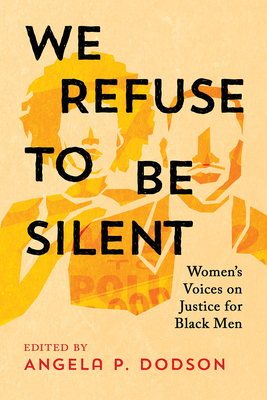Book Review: We Refuse to Be Silent: Women’s Voices on Justice for Black Men
Edited by Angela P. Dodson
Publication Date: Apr 30, 2024
List Price: $29.99
Format: Hardcover, 336 pages
Classification: Nonfiction
ISBN13: 9781506491110
Imprint: Broadleaf Books
Publisher: 1517 Media
Parent Company: Evangelical Lutheran Church in America

